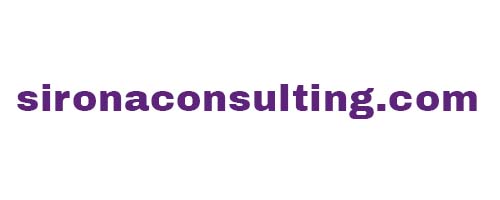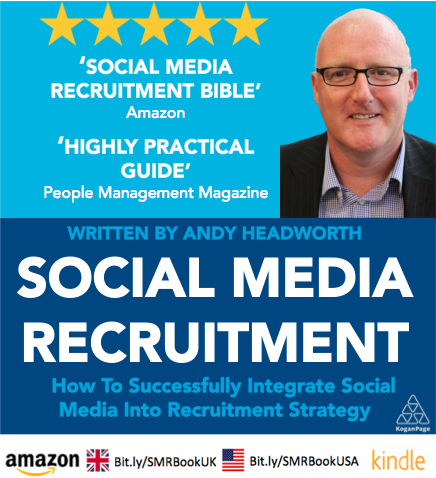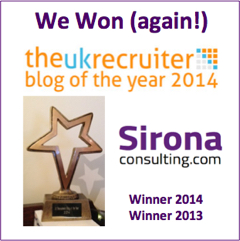Why Are Recruiters Playing LinkedIn Hide And Seek?
As a recruiter or a sourcer, you want people (applicants, candidates, referrals etc) to find you, don’t you? You are at the very least using LinkedIn and maybe even some other social networks, so it isn’t as if you are being bashful with your digital presence, is it?
So why are so many recruiters still playing social recruiting hide and seek? And just to be clear here - they are doing the hiding!
Let me give you an example of what I mean. We know from Google’s research that when most people use a search engine they typically only use 2 or 3 words to do a search - e.g. ‘retail jobs Brighton’. Then you get the results page - typically of ten results (aside from all the sponsored posts). How many of you even look past page one? I don’t have the stats, but I would wager not too many!
Due to the clever search engines, like Google, these ten results will likely yield the links to take you to the right sites to help you find what you need. This ‘minimalist’ searching also prevails across the social networks, as we all use the same search habits on whichever platform we use to find things/people.
Unless someone has your name, or you have been included in one of LinkedIn’s referral links such as ‘People You May Know‘, ‘People Similar To‘ or ‘People Also Viewed’ then the chances are, you are going to have to rely on being found in someone’s search.
< Cue people’s search habit> Remember, people will only enter 2/3 words into the top search bar on LinkedIn to perform their search.
How will people find you?
Well you are a recruiter so it would be natural for someone to use either of the words recruiting, recruitment or recruiter, wouldn’t it? After all these are the words that (from my experiences) most people associate with someone that is in a recruitment function. Then when they see the results of their search they see 10 search results (on the first page) showing pictures, names, headlines and relevant lines of their profiles that show the matched keywords. Here is a search for ‘recruitment consultant digital’ to show what I mean:
Now here comes the hide and seek game!
What are some of the many job titles that companies and recruitment agencies give to their employees? Do any of these fit your role - Account Manager, Senior Account Manager, Resourcer, Sourcer, Talent Acquisition Manager, HR Advisor, Talent Scout, Talent Executive, Principal Consultant, Senior Consultant, Team Leader, Owner, Director etc etc
There is of course nothing wrong with these job titles UNLESS you are actively recruiting people via LinkedIn (or any other social media network for that matter). You are not going to appear in as many people’s searches if you use these titles on LinkedIn without the words - recruiting, recruitment or recruiter - associated to them. The recruitment and HR industry is brilliant at using job titles that mean diddly to anyone outside recruitment, or even their own company! You may be an Account Manager for your recruitment agency, but for what or for who? It means nothing to the outside world. Just add the word recruitment to the front of the title and suddenly your job title has some meaning to someone outside your company - Recruitment Account Manager.
My favourite example of this is with a recruitment agency I did some work with. They were in financial recruitment, and had given all their many recruitment consultants job titles such as ‘Principal Consultant’, ‘Senior Consultant’ and ‘Managing Consultant’, to make them appear more finance related. They also deliberately wanted to distance themselves from other recruitment agencies. They had their profile summaries ‘professionally’ written for them (they were all the same!), and (again) they avoided using the word recruitment anywhere. The owner thought their profiles were brilliant and really put their company on a professional pedestal! Then I showed them some simple LinkedIn searches that their typical candidates would do to find them…….. I got to page ten of search results on LinkedIn, and still not one of their consultants appeared! Of course this changed after we had brought their profiles back into the real world, and used the correct terminology.
We are in a candidate driven marketplace and we all need to make sure we maximise every opportunity to be found by the right people - recruiters are absolutely no different. They need candidates to find them.
So remember, think of the audience you are trying to reach and use the language they normally use to describe your job function - and then use those in your social media profiles. IT WILL make a big difference to you. If this is proving a challenge, you know where I am 🙂
If you want to discuss areas of this post, or need help with regards to improving your strategy or process, just send me an email and let’s have a chat.
And remember, if you like this post, don’t forget to subscribe to Sirona Says blog to ensure you don’t miss the weekly posts. And if you haven’t got your copy yet, don’t forget to buy a copy of my new book.
Image source here



